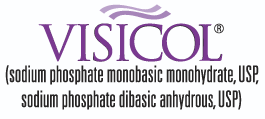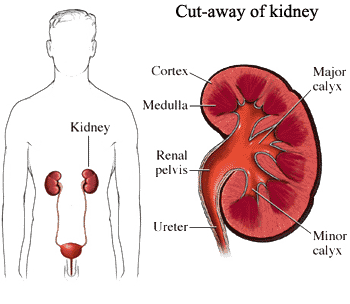Recent FDA ‘black box’ warnings on oral sodium phosphate products have led to deep public concern. Some of the products continuing oral sodium phosphate include Fleet Accu-Prep, Fleet EZ Prep (Fleet Phospho-soda EZ prep Bowel Cleansing System), Visicol tablets, Wal-Phosphate or CVS brand bowel cleansers . Studies have shown that these products can possibly cause acute kidney failure.
The dangers of oral sodium phosphates have been widely covered in national and  local news as well as across the internet. However, this information often contains medical jargon and terms that will not be familiar to most people. So that you have a better understanding of the terms and conditions related to oral sodium phosphates, Keller & Keller LLP has created a glossary of terms for you to use as a reference.
local news as well as across the internet. However, this information often contains medical jargon and terms that will not be familiar to most people. So that you have a better understanding of the terms and conditions related to oral sodium phosphates, Keller & Keller LLP has created a glossary of terms for you to use as a reference.
Glossary of Terms
• A
Acute Phosphate Nephropathy - (APN) a type of acute kidney injury that has been linked to the use of oral sodium phosphate (OSPs) products before colonoscopy or other surgeries. APN is a rare, but very severe type of kidney failure.
• B
Boxed Warning or Black Box Warning - This is the FDA’s harshest, most strict warning that can be placed on a medication or product.
Bowel cleansing - The cleansing of the bowels before a colonoscopy or other surgical procedure that requires that the bowels be clear. This process is often done by the use of an OTC or prescription laxative, sometimes requiring multiple doses and very strict guidelines in regards to how the medication should be taken.
• C
C.B. Fleet, Co., Inc.- the maker of Phospho-soda. Since the early 1990s, C.B. Fleet has marketed the product in a double-dose format as a bowel cleanser prior to a colonoscopy.
Class Action Lawsuit - In the legal world, a class action lawsuit, or a representative action lawsuit, is a lawsuit in which a large group of people collectively take a claim to a court. Class action lawsuits generally involve a business or product, medication, defective item/product, etc., that has caused injury or harm to the individuals or business(es) filing the claim.
Colon - The colon is the last section of the intestines. It is here where water and salt from solid wastes is extracted before being eliminated from the body.
Colon Cleansing - The practice of clearing the bowels prior to a colonoscopy or other similar surgical procedure. This can be done in a variety ways, including OTC and prescription laxatives or medications.
• D
Defendant - The defendant(s) is the individual(s) or group who is required to respond to the complaint that a plaintiff(s) has filed. The defendant can be an individual, multiple individuals, a group/organization, a business, or a governmental agency.
Dehydration - Occurs in varying levels and can become noticeable when as little as 2% of the body’s required or normal water has been lost. Symptoms can include thirst, dark or less than normal urination, headaches, muscle cramping, decreased blood pressure and/or dizziness or fainting. If left untreated dehydration can result in kidney impairment, or permanent damage, and possibly death. Dehydration can occur from lack of fluid intake or from diarrhea, especially from the over use of a laxative.
Dialysis - The medical or artificial process of filtering the body’s fluids when the kidneys can no longer perform this process efficiently on their own.
• F
Food & Drug Administration (FDA) - The U.S. Food and Drug Administration (FDA) is the agency of the US Department of Health and Human Services and handles the regulating and supervises the safety of the foods you eat, your dietary supplements, drugs; both prescription and OTC, vaccinations, biological medical products, blood products, medical devices and more.
Fleet Phospho-Soda - An over-the-counter oral sodium phosphate medication, which the FDA is now requiring to be labeled with a ‘black box’ warning on the packaging.
• H
Hypovolemic - Hypovolemia (also hypovolaemia) is when an individual has decreased blood volume; in particular, a decrease in volume of their blood plasma. This can be caused by several things, including dehydration, bleeding and/or vomiting.
• K
Kidney Disease - Renal failure or kidney failure is when the kidneys  cease working or fail to operate appropriately, thus posing severe health risks that could lead to death.
cease working or fail to operate appropriately, thus posing severe health risks that could lead to death.
• L
Laxative - Laxatives, both OTC and prescription, are used to generate bowel movements or used to help with constipation. Some laxatives are used to cleanse the colon for a colonoscopy or other surgical procedure. Very large doses of laxatives can cause diarrhea resulting in fast colon cleansing.
• M
Medical History - This is all the data related to your current and past health history. This information is generally disclosed to the PCP that maintains your health records. This information is vital, as some medications may or may not be right for you due to your medical history. Withholding information can be detrimental to your health and possibly cause you extreme harm.
Medication Interaction - This occurs when more than one medication is being taken, consumed, or used by an individual, and interacts in a negative fashion. This can occur by accident, doctor oversight, patient oversight, or by withholding information when being prescribed medications.
Medical Malpractice - Medical malpractice is the result of a a health care provider's fails to provide care and/or treatment that is in accordance with acceptable standards of practice established by fellow peers in the medical community, thus causing injury to the individual as a result. Standards and regulations for medical malpractice vary by country and jurisdiction within countries and most states have their own laws regarding malpractice. All medical professionals are required to carry professional liability insurance to offset the risk and costs associated with lawsuits regarding medical malpractice.
• N
Negligence - Negligence is the legal term used to describe an act of inattentiveness by another party that results in injury to another person(s). It can be generally defined as conduct or behavior that is unacceptable, as it deviates from the actions a reasonable person would undertake to protect another person from any foreseeable risk of harm.
• O
Oral Sodium Phosphate - Oral sodium phosphate is a laxative medication that is taken orally for constipation, and to cleanse the bowels prior to a colonoscopy or surgical procedure.
OsmoPrep - A prescription oral sodium phosphate medication, which the FDA is now requiring to be labeled with a ‘black box’ warning on the packaging.
Over-The-Counter (OTC)- Over-the-counter medications are products that have been approved for use without an official prescription and can be purchased by a consumer at a store.
• P
Personal Injury Attorney (PI Attorney) - An attorney who provides legal representation for individuals, parties, or businesses that have sustained either physical and/or psychological injuries as a result of another party's negligence or wrongdoing. Personal-injury attorneys are able to practice most fields of law, but some choose to focus specifically on injury law so that they are extremely knowledgable in all facets of injury cases and therefore best able to care for their clients. Most personal injury attorneys focus their trained efforts toward: automobile accidents, semi-truck accidents, motorcycle accidents, defective products, medical malpractice, slip and falls, dog bites, and various other injury-related practice areas.
Plaintiff - A plaintiff is the claimant(s) and is the party that initiates a lawsuit or action before a court. The plaintiff does so to obtain legal reolution, and if the court issues judgment in favor of the plaintiff, monetary and/or punitive damages can be awarded.
Primary Care Physician (PCP) - This is your ‘family doctor’ or other licensed physician. This doctor generally possesses your medical history. It is important that you disclose to your PCP all details related to your medical history.
• R
Renal Tubules - The renal tubule is the basic component of the kidneys where filtration occurs. Fluids are moved through these tubes to be filtered, but can build up crystals or mineral deposits if enough fluid does not pass through on a regular basis.
• V
Visicol - A prescription oral sodium phosphate medication, which the FDA is now requiring to be labeled with a ‘black box’ warning on the packaging.

